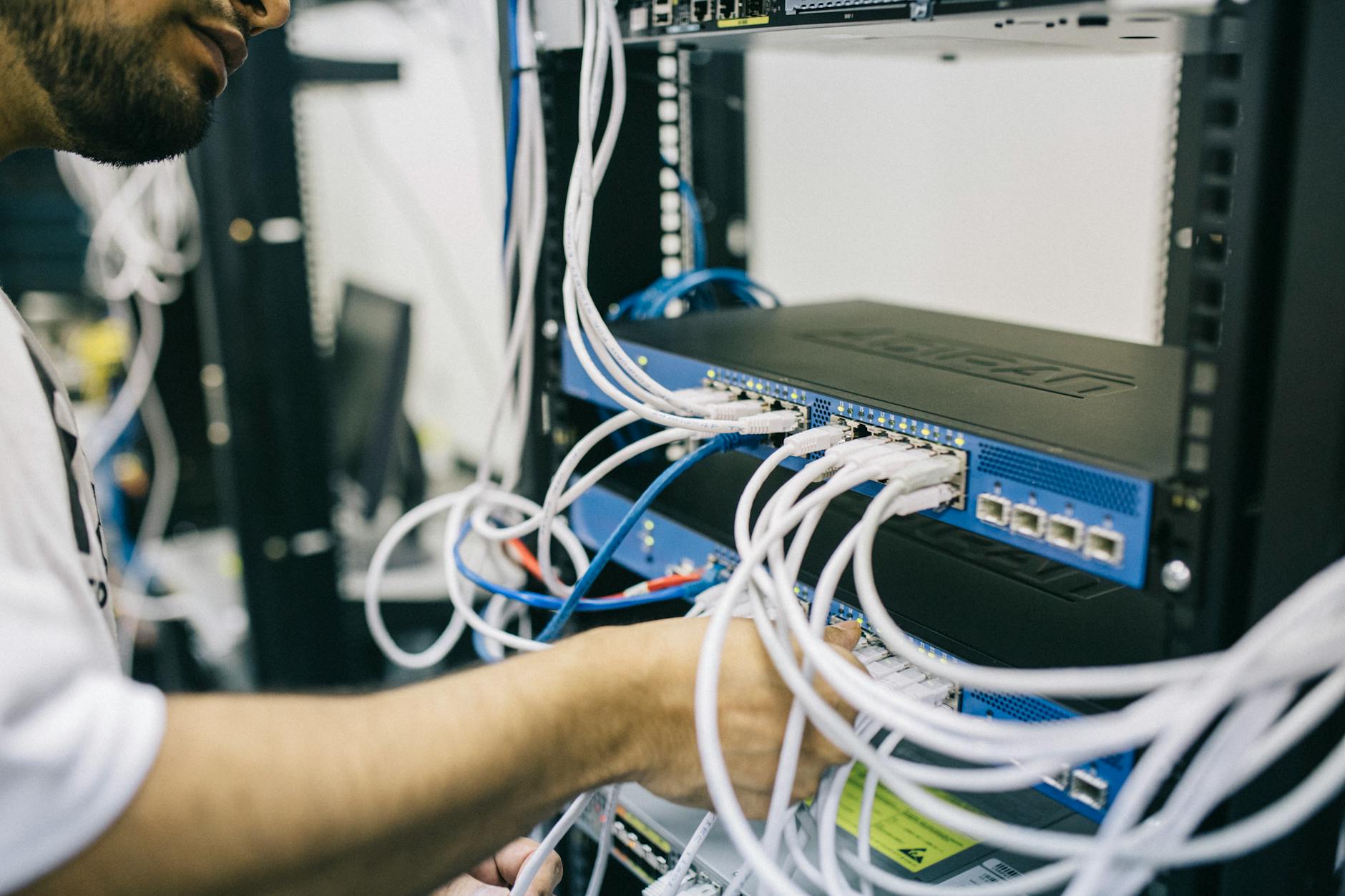
Information Technology: The Unsung Hero of Your Daily Life (Yes, Even Your Smart Fridge)
Picture this: You wake up to a playlist curated by an AI that knows your mood before you do. Your coffee maker starts brewing because your fitness tracker detected you rolling out of bed. Meanwhile, algorithms you’ll never see fight off cyberattacks targeting your bank. This isn’t science fiction—it’s information technology working its magic while you’re still rubbing sleep from your eyes.
I’ve spent 15 years in IT trenches—from fixing “have you tried turning it off and on again?” issues to architecting cloud systems that handle millions of transactions. Let me pull back the curtain on what IT really means in 2024 and where it’s headed next year.
What Exactly Is Information Technology?
At its core, information technology (IT) is like the nervous system of the digital world. It’s not just about computers—it’s the entire ecosystem that allows data to be created, stored, shared, and secured. The field exploded from clunky mainframes to today’s reality where your watch has more processing power than the Apollo mission computers.
The 5 Pillars of Modern IT
- Hardware: Physical devices (servers, routers, your smartphone)
- Software: Programs and operating systems making hardware useful
- Networking: The digital highways connecting everything
- Data Management: Storing and making sense of information
- Cybersecurity: The digital immune system fighting constant threats
2025 Trends That’ll Make You Rethink IT
Having attended three major tech conferences this year and consumed enough caffeine to power a small data center, here’s what’s coming:
1. AI Becomes the Ultimate IT Assistant
Forget Clippy from old Microsoft Word. By 2025, AI will automatically troubleshoot 40% of common IT issues before users notice them. I recently saw a demo where an AI predicted a server failure 72 hours in advance by analyzing fan vibration patterns—like a mechanic listening to your car’s engine, but for data centers.
2. Quantum Computing Gets Real (Sort Of)
While we won’t have quantum laptops next year, expect breakthroughs in pharmaceuticals and materials science. I joke with my team that working with quantum bits is like herding cats—if the cats existed in 16 dimensions simultaneously.
3. The Rise of “Invisible IT”
Consumer tech will increasingly hide complexity. Your smart home won’t have 15 apps—it’ll just work, like electricity. (Remember when we manually cranked car windows? Exactly.)
| Aspect | Traditional IT | 2025 IT |
|---|---|---|
| Updates | Manual patches every Tuesday | Continuous, self-healing systems |
| Security | Firewalls and antivirus | AI-driven threat hunting |
| User Interaction | Help desk tickets | Proactive problem prevention |
| Data Centers | On-premise server rooms | Hybrid edge/cloud architectures |
Lessons From 15 Years of IT Whack-a-Mole
Here’s what they don’t teach in certification courses:
The 10% Rule
Any IT project takes 10% longer and costs 10% more than expected. This isn’t incompetence—it’s the universe’s tax for working with complex systems. I once spent three days debugging an issue caused by a single comma in a config file.
Users Will Always Find Creative Ways to Break Things
My favorite? Someone called because their “monitor was out of water.” They’d confused the PC tower with a water cooler. We now include “Is it plugged in?” bingo cards in our onboarding packets.
IT Is Really About People
The tech is easy compared to explaining why Great Aunt Mildred can’t use “password123” anymore. Empathy separates good IT pros from great ones.
FAQs: What Newbies (and Veterans) Actually Ask
Is a career in IT still worth it in 2025?
Absolutely—but the skills are shifting. Cloud architecture, AI collaboration, and security analytics will be gold mines. The “lone wolf hacker in a basement” stereotype is dead.
How do I future-proof my small business’s IT?
Focus on three things: automated backups you’ve actually tested, multi-factor authentication everywhere, and choosing vendors with clear upgrade paths. I’ve seen more businesses fail from bad IT than bad marketing.
Will AI replace IT jobs?
AI will replace tasks, not roles. The plumber didn’t disappear when wrenches improved—they just fixed more leaks. Expect higher-value work like strategic planning and exception handling.
The Bottom Line: IT Isn’t Just a Department—It’s Your Competitive Edge
Whether you’re a startup founder, career changer, or just someone who wants their WiFi to stop mysteriously dropping during Zoom calls, understanding IT fundamentals is now survival skill. The companies (and people) who thrive will be those treating technology as a partner rather than a necessary evil.
Ready to level up? Start small: Audit your passwords, explore one new productivity tool this month, or finally set up that backup you’ve been meaning to do. The future belongs to those who speak tech as a second language—and I’ll be here to translate.
Related: AI for seniors
Related: Silent Hill 2 remake preview
Also read: HubSpot
Also read: Google


